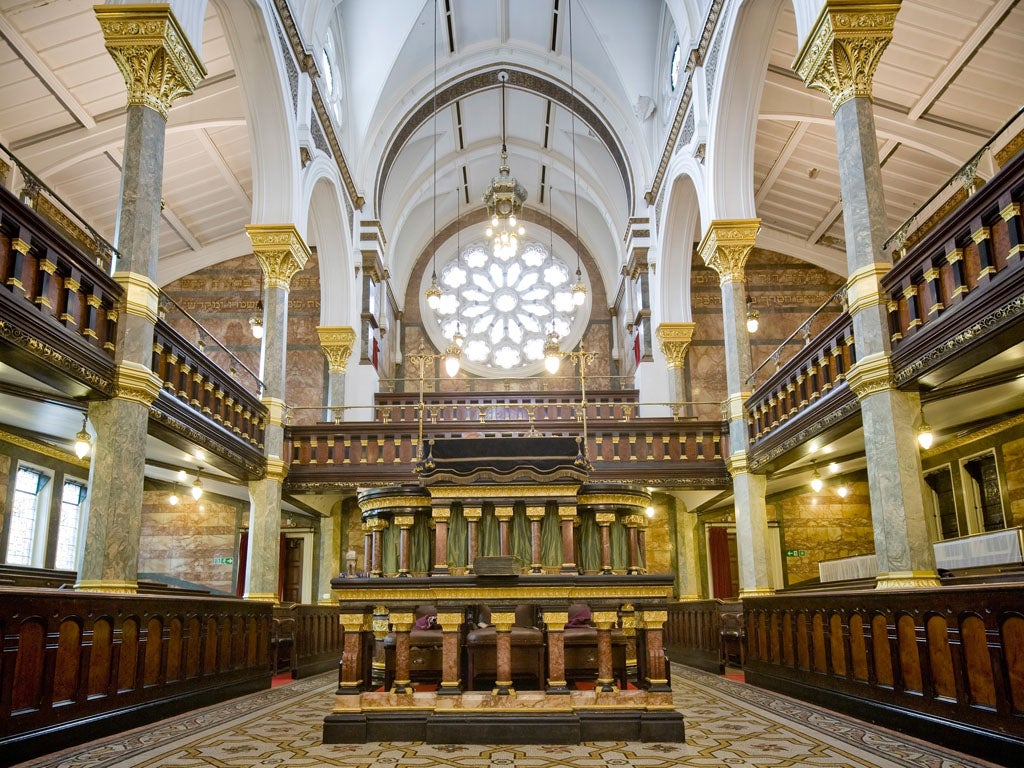A Jewish perspective on same-sex marriage
Anyone who takes sacred religious texts literally needs to move on with the times. Marriage should be open to all.

From a Jewish perspective, it is hard to see why anyone religious can be against same-sex marriage without being accused of acute hypocrisy.
Christians might quote the Bible and the verse in Leviticus 18.22 which declares ‘You shall not lie with a man as with a woman; it is an abomination’ or go a few chapters on where it is not only repeated, but in even stronger terms, and the death penalty is laid down for all practitioners (20.13).
However, despite those who piously cite Scripture, they have no problem ignoring other verses in the same sacred book. For instance, about circumcising their male children, abstaining from pork or prawns, and not wearing garments in which wool & linen is mixed.
Those who conveniently overlook those commands but still object to homosexuality, are just doing a pick and mix job with the Bible, and are driven not by religious beliefs but by anti-gay prejudice.
As for Jews who take all of the Hebrew Bible seriously, there are three choices when approaching the verses on gays.
Some stick to the literal text, but that causes a major problem when they come up against real live people who are both gay and religious, whose lives defy the Bible and who simply cannot be dismissed as abominable.
Others drasticly reinterpret the text, claiming that the ban on homosexual activity should be read with regard to heterosexuals: that they should not engage in homosexual relationships.
Thus heterosexuals should stick to their practices, homosexuals to theirs, and everyone do what is natural to them, but not engage in other types of sexual practices for the sake of experimentation.
This may appear to be twisting the biblical verse, but it is a genuine attempt to wrestle with a sacred text, work within the Bible and find meaning for today.
The third - and, to my mind, best - option is to say that the Bible is not the literal word of God (and thus cannot be changed), but is the inspiration of God, as perceived by people of that era and subject to the limitations of the period. It therefore has to constantly adapt according to new knowledge and new insights.
Revelation was not a one-off, never to be repeated, but instead there is the concept of Progressive Revelation; each generation seeking to understand the will of God for its own time.
A modern Jewish approach would therefore endorse the view that homosexuality is not a perversion but a natural orientation. Moreover, if we regard all humanity as creatures of God, then God not only made some people male and some female (Genesis 1.27) , but also some heterosexual and some homosexual. Gay people are created gay by God.
If this is the case, then certain consequences follow: one is complete equality for gay people, not just in a negative sense of being free from discrimination, but in having positive rights, be it pensions, marriage or divorce. It is a matter of equity. Equity is not just a secular value, but a very important religious value and needs to be reclaimed as such.
Another consequence is that the term ‘marriage’ and the concept of marriage does not belong exclusively to heterosexuals; they may have had it first and for a long time, but that does not give them sole claim on it. It would be just as ridiculous to restrict the right to vote to men because it used to belong solely to them (and, originally, only to men who were property-owners).
If we believe that marriage is a good vehicle for stability – both for the couple themselves and for society at large - then why should it be limited to heterosexuals?
It is also important to dispel two spurious arguments against gay marriage. Firstly, that marriage is associated in many religious mindsets with children. That is certainly true, but ‘associated with’ is not the same as ‘dependent on’ – otherwise ministers of all faiths would have to refuse to officiate at ceremonies in which a young couple had already decided not to have children, or were unable to have any for medical reasons. We would also have the embarrassing task of asking brides who were 40-something whether they had gone through menopause yet.
Secondly, nothing is more ridiculous than claims that permitting gay marriage would destroy family life or marriage in general. What gay people do or do not do will have no effect on whether heterosexuals marry, live-together, have children, have affairs, fall-out, get divorced, or remarry.
Those who feel that society will be undermined by gay marriage are really saying that they personally feel threatened by it. It is certainly true that heterosexuals can feel uncomfortable with homosexuality, but that is largely habit and conditioning, and should have no bearing on how society reacts or legislation is framed.
I cannot believe in a God who creates both heterosexuals and homosexuals, and would then want us to deny either the right to seek marital fulfillment. It is neither fair, nor religious.
Independent Voices has launched a campaign to legalise same-sex marriage. To read more about our Equal Partners campaign and sign the petition, click here.
Join our commenting forum
Join thought-provoking conversations, follow other Independent readers and see their replies
Comments
Bookmark popover
Removed from bookmarks